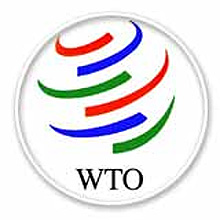For Vietnam now, promoting exports is the decisive factor for the success of industrialisation and modernisation. Exports bring home capital to import advanced equipment and technologies and other products of a intellectual-based economy. Being admitted to the WTO, the tariff barriers will be removed or reduced, so as the quotas. These are very important for Vietnam.
Currently, Vietnam’s exports turnover stands at around US $30 billion, accounting for half of the country’s GDP. Thus, the benefits are not small at all.
Those products that Vietnam has advantages such as textiles and garments, footwear, coffee, rubber, processed seafood, furniture, electronics appliances will have more opportunities on the world market.
However, once Vietnam has become a WTO member, the country will also have to face difficulties and challenges.
Firstly, integration but not dissolvent, Vietnam integrates but has to maintain national identity as well as the regime’s identity, always following the policy of independence and self-reliance in economic development.
Secondly, once tariff barriers are reduced for removed and quotas abolished, competition are more severe. Products of low competitiveness can not be exported. On the other hand they will be defeated by foreign products. Thus, domestic businesses might face bankruptcy. Unemployment rate might rise.
This requires Vietnamese enterprises to do their utmost to make reforms so as to produce products of high quality, high competitiveness and reasonable prices.
This means the increase in development quality of Vietnamese economy.
To overcome those challenges, Vietnam needs to make active and careful preparations for effective integration in the WTO.
The whole people, especially those working in the business field, including industry, agriculture and services, should be fully aware of the WTO, the necessity to join the WTO as well the opportunities and challenges the integration might brings.
Efforts should be paid into building a sound business environment in the spirit of ensuring independence and self-reliance, socialist orientations, active integration into the international economy. These include supplementing, adjusting and amending laws and policies; increasing the quality and effectiveness of State-owned enterprises and encouraging the development of private sector.
All enterprises must pay greatest efforts to increase the competitiveness of their products, even though they are for exports or for sale on the domestic market.
Negotiations must be made on the basis of thorough understanding of WTO regulations, the situations of the world market and the markets and economic policies of major partner-countries in WTO as well as the policies and laws of Vietnam, so as to make the most advantages of joining the WTO.
Source: Ministry of Finance of Vietnam (http://www.mof.gov.vn)
















